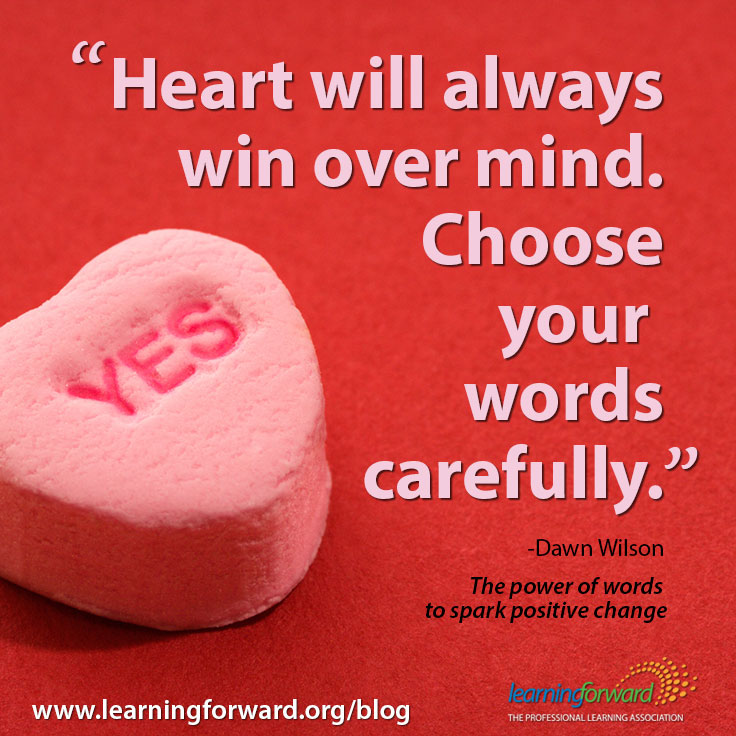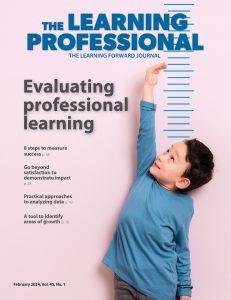How do you use the power of words to spark positive change? How are words being used in your setting to create a culture of caring?
In a YouTube video, a blind man sits by a busy city street hoping for some spare change. Beside him is a sign, “I’m Blind. Please Help.” People pass him by without notice until a girl stops and re-words his sign, “It’s a Beautiful Day and I Can’t See It.” Immediately, passersby respond to the man because of the power of words.
The recent passing of my 24-year-old niece caused me to think more deeply about the power of words. Emma loved words and used them with economy to convey deep meaning, often in handwritten cards and notes with words of encouragement and hope. Many who attended her memorial service brought “Emma’s Words” with them and shared how her words inspired them.
How many of you have collected words that inspired you?
Words matter
Words can offer perspective, insight, and understanding. Words can bring encouragement and hope. Words can remove fear and isolation. Words can reconcile and unite. When words become actionable in our own lives and the lives of others, we can change our thinking and our practice.
Education is word intensive. Educators use words continually in classrooms, meetings, professional learning communities, curriculum guides, school improvement plans and in a multitude of ways. Using words meaningfully is both an art and a science.
Recently a teacher shared how her observation debrief was conducted. In a nutshell, the administrator read the verbatim notes taken during the observation, offered value judgments, and gave no opportunity for the teacher to contribute. The teacher was left with a lot of words but without a plan for next steps to improve her instructional practice.
The impact of words
Now let’s imagine how the administrator could have conducted this debrief and given meaningful feedback. Effective feedback is built on carefully chosen words. What if the administrator offered helpful feedback, asked reflective questions and invited the teacher’s input about the lesson? Feedback is information about how someone is progressing toward meeting a goal. Advice and value judgments are not feedback because they lack information that can inform next steps. Constructive feedback is goal-oriented, results-focused, actionable, specific, timely, ongoing, consistent, and comes from an informed voice.
Hattie’s research review in Visible Learning, indicates that feedback has a significant impact on increasing student achievement. So it makes sense that using words powerfully to craft effective feedback is fundamental to improving student performance. Imagine the change in teaching and learning if we became more feedback savvy!
Feedback can harness the power of words and build a culture of trust. It is the beginning of a conversation that leads to improved instructional practice. Feedback is also an integral part of conversations about teacher assessment. When educators are skilled at giving and receiving feedback, teachers’ confidence to self-assess and reflect is cultivated and collective collegiality is enhanced.
As an educator, my experience and learning taught me that words are powerful messengers. However, I learned from our Emma how words can be transformed into actions that change people’s lives for the good. Now that is the real power of words.
Lessons learned from the power of words:
- Let your words carry hope.
- Heart will always win over mind. Share words accordingly.
- Choose your words carefully. Once shared, they are irretrievable.
- When giving feedback, avoid advice or value judgments.
- Words without an informed voice is just noise.
- Active listening opens minds to different insights.
- Ask questions that cause others to think deeply and reflect.
- An economy of words can speak volumes. Often less is more.
- Silence can be effective communication. “Silence is the language of god, all else is poor translation.”–Rumi
How can you use words powerfully in your setting to create positive change and a culture of caring?







